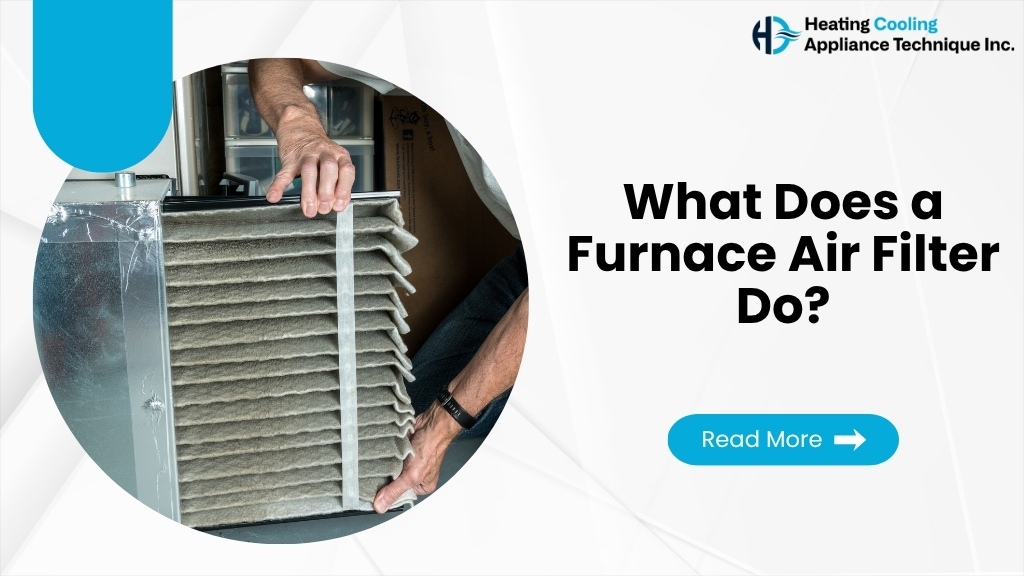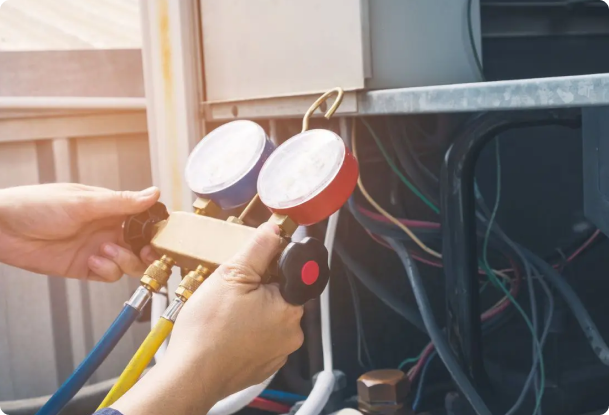
If you’ve stumbled upon this article, you’re likely wondering about the role of a furnace air filter in your HVAC (Heating, Ventilation, and Air Conditioning) system. You might have heard they’re important for your home’s air quality or the longevity of your heating and cooling equipment—but what do they actually do? This article will break it down clearly, while incorporating relevant insights to help you understand furnace air filtration and its importance.
The Role of a Furnace Air Filter
At its core, a furnace air filter is designed as a crucial component of your HVAC system. Its primary purpose? To prevent dust, dirt, and airborne contaminants from entering and damaging the internal components of your furnace. This protective function ensures your HVAC system runs smoothly and efficiently, prolonging its lifespan and reducing repair costs.
Even though its primary role is to protect your furnace, a secondary benefit is improving indoor air quality. By trapping dust, allergens, and pollutants, many high-quality filters double as an enhancement for the air circulating throughout your home.
How Does a Furnace Air Filter Work?
When your HVAC system runs, it pulls air from your home into the furnace via return vents. Before this air enters the furnace, it passes through the filter. The filter’s fibers—whether fiberglass, pleated, or made of other materials—trap particles such as dust, pet dander, mold spores, and even microscopic allergens, depending on its filtration level.
The filtered air is then heated (or cooled) and recirculated into your home. This keeps unwanted contaminants out of your furnace while helping maintain clean air for you to breathe.
Why Is Furnace Air Filtration Important?
1. Protecting Your Furnace
Your furnace is a complex system with delicate components, such as the blower fan and heat exchanger. Without a properly functioning air filter, particles like dust and debris can accumulate in these components, leading to reduced efficiency, overheating, and costly damage.
Additionally, a dirty or clogged filter restricts airflow, forcing your furnace to work harder to push air through. This can cause the system to overheat, “short cycle” (turning on and off repeatedly), and increase the risk of breakdowns.
2. Maintaining Indoor Air Quality
For households with allergies, asthma, or pets, the air quality inside your home is critical. Furnace air filters remove particles, including pollen, dust, and pet dander, from the air you breathe. While a standard filter may only trap larger particles, higher-quality filters, such as HEPA or high-MERV-rated filters, can capture small allergens and even some bacteria.
3. Energy Efficiency & Cost Savings
When your air filter is clean and your furnace is well-maintained, airflow remains unobstructed. This allows the system to work efficiently and consume less energy, helping lower your utility bills.
However, if filters are clogged, your furnace expends more energy to operate, resulting in higher costs and potential long-term damage to the equipment.
4. Longevity of Your HVAC System
Keeping contaminants out of your furnace reduces wear and tear on the components, extending the lifespan of your system. Regularly changing your air filter can save you significant money on repairs and replacements in the long run.
Choosing the Right Furnace Air Filter
Not all filters are created equal. To ensure you’re using the best furnace air filtration system for your needs, consider the following factors:
1. MERV Ratings
The Minimum Efficiency Reporting Value (MERV) measures a filter’s effectiveness at trapping particles. A higher MERV rating means the filter captures smaller particles but may restrict airflow.
- Low-MERV (1–4): Traps large particles like carpet fibers and dust mites but isn’t great for improving air quality.
- Medium-MERV (5–12): Captures mold spores, auto emissions, and smaller allergens.
- High-MERV (13–20): Effective at filtering bacteria and even some viruses, but they may require system upgrades to maintain airflow.
2. Types of Furnace Filters
- Fiberglass Filters: Affordable but only trap large debris, making them suitable primarily for basic system protection.
- Pleated Filters: Made from polyester or cotton, these are better for trapping smaller particles and improving air quality.
- Electrostatic Filters: Self-charging filters trap small particles such as smoke and pet dander. They’re available in washable or disposable varieties.
- HEPA Filters: These high-performance filters can remove up to 99.97% of airborne particulates and are ideal for households with severe allergies or asthma. However, they may require system modifications.
3. Filter Size
Furnace filters come in various sizes. It’s essential to check your HVAC system’s manual or the size indicated on your current filter to ensure a proper fit.
4. Air Quality Needs
Households with pets, smokers, or individuals with respiratory issues may benefit from higher-rated filters or additional air filtrations systems designed to further enhance air quality.
5. Budget
Filters range in cost depending on the type and MERV rating. While washable filters may have a higher upfront cost, they can last for years, providing long-term savings.
When Should You Change Your Furnace Air Filter?
Changing your air filter regularly is vital to maintaining optimal furnace performance and air quality. Frequency depends on several factors, including filter type, household size, number of pets, and HVAC usage.
Here’s a general guideline:
- 1–2-inch filters: Replace every 1–3 months.
- 3–4-inch filters: Replace every 6–9 months.
- 5–6-inch filters: Replace every 9–12 months.
Signs it’s time to replace your filter include reduced airflow, increased dust in your home, or a visibly clogged filter.
Pro tip: Mark filter changes on your calendar or set reminders on your phone to stay on schedule.
How to Optimize Furnace Filtration
If you want to further improve your home’s air filtration:
- Consider investing in advanced air filtration systems like a whole-house air purifier.
- Pair your furnace filter with other tools like UV lights or carbon filters for additional cleaning power.
- Schedule regular HVAC maintenance to ensure your system is running efficiently.
Final Thoughts
A furnace air filter is a small but powerful component of your HVAC system, providing protection for your furnace, improving air quality, and saving you money on energy and repairs. Choosing the right filter and maintaining it properly can make all the difference in your home’s comfort and air quality.
Still wondering about the best furnace air filtration system for your needs? Contact our team of HVAC experts to help you select and maintain the right filter for your home. Clean air is just a filter change away!



